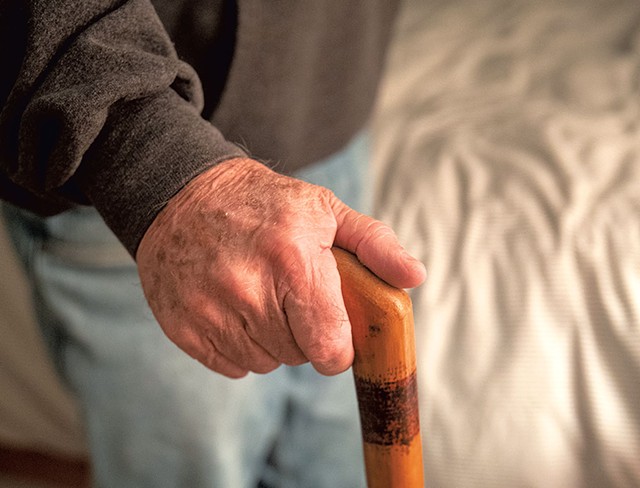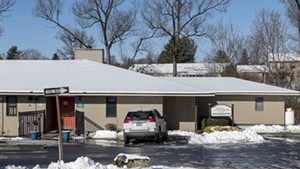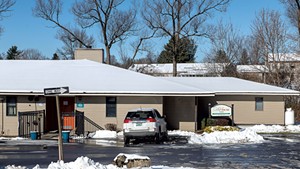
- James Buck ©️ Seven Days
Regulators do not inspect Vermont eldercare homes often enough and are too lenient when they discover problems that could threaten residents’ safety, a state audit released this morning concludes.
Vermont State Auditor Doug Hoffer's report says shortcomings in oversight leaves residents vulnerable. It calls for lawmakers to set more stringent rules.
The audit explores issues that Seven Days and Vermont Public highlighted in a 2019 investigation, “Worse for Care,” which found problems across an industry that is subject to light regulation and enforcement.
Assisted living and residential care homes serve older Vermonters who cannot live independently, but they are not subject to the same federal standards as nursing homes. In his 45-page report, Hoffer scrutinized how the Vermont Department of Disabilities, Aging and Independent Living oversees the 114 homes that serve more than 3,000 residents. The report recommends a dozen areas for improvement.
“To put it plainly, DAIL’s efforts to ensure Vermonters living in assisted living and residential care facilities are safe have not been good enough,” Hoffer said in a statement.
The agency disputed some of the auditor’s conclusions and noted that lawmakers last year funded five new positions that will allow for more robust oversight of eldercare facilities. But the findings “do generally align with the direction” that DAIL’s long-term care inspection unit will take, DAIL Commissioner Monica White wrote in response to the report.
DAIL inspectors followed up when the most serious problems were identified, but the audit found that it often took between two and four months to ensure the shortcomings had been corrected. For somewhat less severe problems, the agency followed up less than half of the time.
Many homes have been cited for the same problems repeatedly, but because the agency takes a narrow view of what constitutes a repeated or uncorrected violation, operators are “granted more leniency for repeat mistakes,” the audit noted, echoing another finding of “Worse for Care.”
No eldercare operator has been fined for violating state regulations since 2019, in part because inspections ground to a halt during the pandemic, as Seven Days and Vermont Public previously reported.
The auditor’s office suggested the problems found at eldercare homes should be treated just as aggressively as those identified at nursing homes. “In both cases, vulnerable Vermonters are at risk,” Hoffer wrote.
White said eldercare homes do not provide the same degree of medical services as nursing homes and warrant less oversight. Some of the state’s eldercare homes are small businesses, noted White, who became commissioner in 2021.
“In some cases, monetary fines could serve to put a facility out of business” and displace residents, she wrote in the agency’s response.
With its recently added positions, DAIL is carving out a team of inspectors who will be focused strictly on the state-regulated homes. The added staff will allow the agency to move toward a "roughly one-year" inspection cycle," White said.
Hoffer told Seven Days that he asked staff to look into eldercare regulation after his father, who died recently, spent time in a care facility in Florida.
"I got to step in those shoes for a minute and appreciate the importance of the state taking that responsibility seriously," he said.
Consumers trying to select an eldercare home have tended to rely on incomplete information, the news outlets found in 2019, because DAIL had not published more than 150 inspections on its website. The agency appears to have been more consistent about posting inspections in the years since; the auditor’s office found just eight missing reports, which it still identified as a problem.
It further criticized the state’s website for being harder to navigate and less complete than other comparable state regulators.
White, in an interview, said the agency had a plan to overhaul the website but was derailed by the pandemic. DAIL will reevaluate the plan soon. "It certainly is a priority," White said.









Comments
Comments are closed.
From 2014-2020, Seven Days allowed readers to comment on all stories posted on our website. While we've appreciated the suggestions and insights, right now Seven Days is prioritizing our core mission — producing high-quality, responsible local journalism — over moderating online debates between readers.
To criticize, correct or praise our reporting, please send us a letter to the editor or send us a tip. We’ll check it out and report the results.
Online comments may return when we have better tech tools for managing them. Thanks for reading.